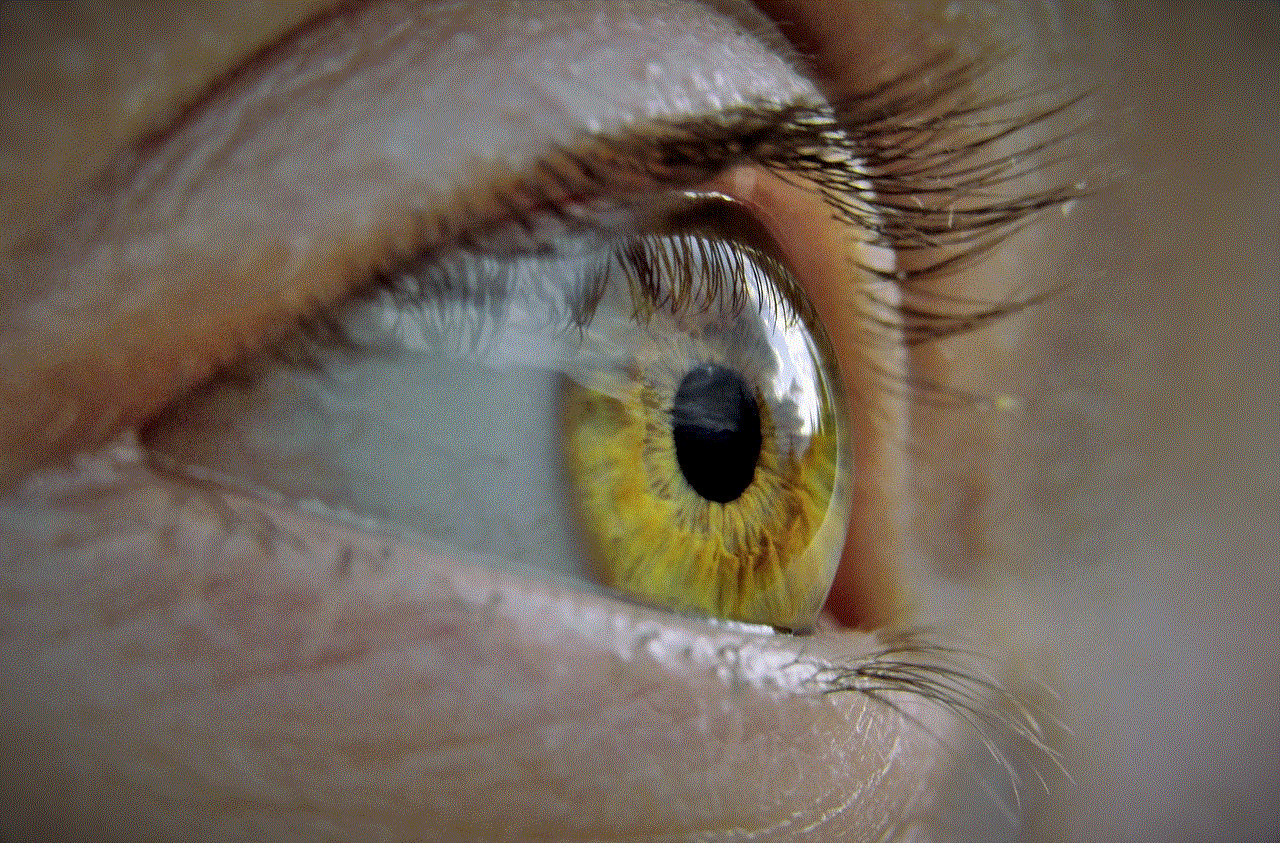how to check up on someone text
In today’s digital age, communication has become easier and more convenient than ever. With the rise of smartphones and messaging apps, people can stay connected with each other 24/7. While this has its benefits, it also raises concerns about privacy and the need to check up on someone’s texts. Whether you are a concerned parent, a suspicious partner, or an employer monitoring company devices, knowing how to check up on someone’s texts can be useful. In this article, we will discuss various methods and tools that can help you keep an eye on someone’s text messages.
1. Understand the Legal Implications
Before we dive into the different ways to check up on someone’s texts, it is essential to understand the legal implications of doing so. In most countries, it is illegal to access someone’s text messages without their consent. It is considered a violation of privacy and can result in severe consequences. Therefore, it is crucial to have a valid reason and permission to check someone’s texts. If you are unsure about the legality of monitoring someone’s texts, it is always best to seek legal advice.
2. Have an Honest Conversation
The first and most straightforward approach to check up on someone’s texts is to have an honest conversation with them. If you are a parent, talk to your child about the importance of online safety and set some ground rules for using their phones. If you are a partner, express your concerns and discuss the need for transparency in your relationship. Similarly, if you are an employer, communicate the company’s policies on device usage and monitoring.
3. Use Parental Control Apps
For parents who want to monitor their child’s texts, there are various parental control apps available in the market. These apps allow you to keep track of your child’s phone activity, including text messages, call logs, and internet usage. Some popular parental control apps include Qustodio, Net Nanny, and Norton Family. These apps also offer additional features such as setting screen time limits, blocking inappropriate content, and tracking the device’s location.
4. Use Phone Tracking Apps
Phone tracking apps are another useful tool for checking up on someone’s texts. These apps are specifically designed for tracking and monitoring a device’s location, call logs, and text messages. Some popular phone tracking apps include mSpy, FlexiSPY, and Highster Mobile. However, before using these apps, make sure to check the legality of using them in your country and obtain the necessary consent.
5. Use iCloud or Google Account
If you want to check someone’s texts without installing any third-party apps, you can use their iCloud or Google account. If the person uses an iPhone, you can access their iMessage conversations by logging into their iCloud account on a computer . Similarly, if they use an Android device, you can check their texts by logging into their Google account on a computer and accessing their Google Hangouts or Messages app.
6. Check the Phone Bill
Another simple way to check someone’s texts is by checking their phone bill. Most service providers include a detailed list of incoming and outgoing calls and messages on the monthly bill. This method is useful for parents who want to monitor their child’s texts or employers who provide company devices to their employees. However, this method is not foolproof as some service providers do not include message details on the bill.
7. Ask for Their Phone
If you have a good reason to check someone’s texts, you can always ask for their phone directly. This method is suitable for partners who suspect their significant others of cheating or parents who want to check their child’s phone for inappropriate content. However, it is essential to handle the situation delicately and respect the other person’s privacy.
8. Use Spyware
Spyware is a type of software that allows you to monitor someone’s phone activity remotely. It can be installed on the target device and runs in the background, recording all incoming and outgoing calls, messages, and internet usage. However, the use of spyware is highly controversial, and it is crucial to obtain the person’s consent before installing it on their device.
9. Hire a Private Investigator
If you have exhausted all other options and still need to check someone’s texts, you can hire a private investigator. They are trained professionals who specialize in gathering information and evidence for legal purposes. However, this option can be costly, and it is essential to find a reputable and trustworthy investigator.
10. Trust Is Key
While there are various ways to check up on someone’s texts, it is essential to remember that trust is the foundation of any relationship. Constantly monitoring someone’s texts without their knowledge can lead to a breach of trust and damage the relationship. Therefore, it is crucial to have open and honest communication and only resort to checking someone’s texts when there is a valid reason and consent.
In conclusion, checking up on someone’s texts is a sensitive issue that requires careful consideration. Before using any of the methods mentioned above, make sure to understand the legal implications and have a valid reason for doing so. It is also crucial to respect the other person’s privacy and only monitor their texts with their consent. Trust is the key to any relationship, and it is essential to maintain it while ensuring the safety and well-being of your loved ones.
ftc warns health apps impacted data



The world of healthcare has been revolutionized by technology in recent years, with the rise of health apps making it easier for individuals to track and manage their own health and wellness. These apps have become increasingly popular, with millions of downloads and users worldwide. However, as with any technology, there are potential risks and concerns that come with the use of health apps. In fact, the Federal Trade Commission (FTC) has recently issued a warning about the potential impact of data breaches on health apps. In this article, we will explore the details of the FTC’s warning and what it means for both consumers and developers in the healthcare industry.
First and foremost, it is important to understand what the FTC is and its role in protecting consumers. The FTC is an independent agency of the United States government, whose main responsibility is to promote consumer protection and prevent anti-competitive business practices. The agency has a broad scope of authority, including the ability to investigate and take action against companies that engage in deceptive or unfair business practices. With the rise of technology and the increasing use of health apps, the FTC has been paying close attention to potential risks and concerns in this space.
The recent warning from the FTC specifically focuses on the impact of data breaches on health apps. This is a significant issue as health apps often collect sensitive and personal information from users, such as their medical history, exercise habits, and even location data. In the wrong hands, this information can be used for malicious purposes, putting the privacy and security of users at risk. In fact, according to a report from the Identity Theft Resource Center, there were over 1,500 data breaches in the healthcare sector in 2017 alone, compromising the personal information of millions of individuals.
One of the main concerns highlighted by the FTC is that many health apps do not have strong enough security measures in place to protect user data. In many cases, these apps are developed by small start-up companies with limited resources and may not have the expertise or resources to implement robust security measures. This makes them particularly vulnerable to potential data breaches. The FTC warns that if these companies do not take the necessary steps to secure user data, they could face legal action for failing to protect consumer privacy.
Another issue raised by the FTC is the potential for health apps to share sensitive user data with third parties without proper consent. This can happen through the use of third-party analytics and advertising tools, which are often used by app developers to generate revenue. While these tools can be beneficial for developers, they also pose a risk to user privacy as they may collect and share sensitive information without the user’s knowledge or consent. The FTC warns that developers must ensure that they have proper consent mechanisms in place and be transparent about the data they collect and share with third parties.
In addition to the risks posed by data breaches and third-party sharing, the FTC also highlights the potential for health apps to make false or misleading claims about their effectiveness. Many health apps claim to provide various health benefits, such as helping users lose weight or manage chronic conditions. However, these claims may not be backed by scientific evidence or may be exaggerated to attract more users. The FTC warns that developers must ensure that any health claims made by their apps are supported by reliable scientific evidence to avoid making false or misleading statements to consumers.
So, what can consumers do to protect themselves when using health apps? The FTC recommends that users carefully review the privacy policies and terms of use of any health app before downloading and using it. These policies should clearly outline how the app collects, uses, and shares user data. Users should also be cautious about providing sensitive information to health apps and only do so if they are comfortable with the app’s privacy practices. Additionally, users should regularly review the permissions granted to health apps on their devices and revoke any unnecessary permissions.
On the other hand, what can developers do to ensure they are not at risk of facing legal action from the FTC? The agency advises that developers should implement strong security measures to protect user data, such as encryption and secure data storage. They should also be transparent about their data collection and sharing practices, ensuring that users are aware of what information is being collected and how it will be used. Furthermore, developers should ensure that any health claims made by their apps are backed by reliable evidence and not exaggerated or misleading.
Furthermore, the FTC also encourages the development of industry best practices and standards for the use of health apps. This can help developers better understand their responsibilities and obligations when it comes to protecting user privacy and ensuring the accuracy of health claims. The agency also encourages collaboration between developers and security experts to strengthen the security of health apps and prevent potential data breaches.
In conclusion, the FTC’s warning about the potential impact of data breaches on health apps serves as a reminder for both consumers and developers to be vigilant when it comes to protecting user privacy and ensuring the accuracy of health claims. With the increasing use of technology in healthcare, it is crucial that all stakeholders take the necessary steps to protect sensitive information and promote transparency and accountability in the industry. By working together, we can ensure that health apps continue to be a valuable tool for individuals to manage their health and wellness safely and effectively.
can someone see if you screenshot their ig story



In today’s digital age, social media has become an integral part of our daily lives. It has transformed the way we communicate, connect, and share information with others. One of the most popular social media platforms is Instagram , which boasts over 1 billion active users worldwide. With its visual-based interface and user-friendly features, it has become a go-to platform for sharing moments and stories with friends, family, and followers.
One of the features that have gained immense popularity on Instagram is the Stories feature. Introduced in 2016, Instagram Stories allows users to post photos and videos that disappear after 24 hours. It has become a popular tool for users to share their daily activities, thoughts, and experiences with their followers. However, with the fleeting nature of Stories, many users wonder if someone can see if they screenshot their Instagram Story. In this article, we will delve deeper into this question and explore the implications of taking screenshots of Instagram Stories.
To understand if someone can see if you screenshot their Instagram Story, we first need to understand how the platform works. When a user posts a Story, it appears at the top of their followers’ feeds. They can tap on the Story to view it, and it will automatically disappear after 24 hours. However, Instagram does allow users to save their Stories to their device’s camera roll before they disappear. This feature is useful for those who want to keep a record of their Stories or share them on other social media platforms.
When a user takes a screenshot of someone’s Story, the platform does not notify the person whose Story was captured. Unlike Snapchat, which sends a notification when someone takes a screenshot of a snap, Instagram does not have a similar feature. Therefore, the short answer to the question, “can someone see if you screenshot their Instagram Story?” is no. Instagram does not have a feature that notifies users when someone takes a screenshot of their Story.
However, there are ways for users to find out if someone has taken a screenshot of their Story. One way is by using third-party apps. There are several apps available in the market that claim to notify users when someone takes a screenshot of their Story. These apps work by taking a screenshot of the Story and sending it to the user. While this may seem like a useful feature, it raises concerns about privacy and data security. Users should be cautious when giving access to their Instagram account to third-party apps.
Another way someone can find out if their Story has been screenshot is by checking the viewers’ list. When a user posts a Story, they can see who has viewed it by swiping up on the Story. If someone has taken a screenshot of the Story, their name will not appear on the viewers’ list. However, this method is not foolproof as the viewers’ list only shows the first 50 viewers, and the person who took the screenshot may not be in the top 50.
Now that we have established that Instagram does not have a feature to notify users when someone takes a screenshot of their Story let’s explore the implications of taking screenshots of Stories. The first thing to note is that Instagram Stories disappear after 24 hours, and therefore, taking a screenshot can be seen as a violation of privacy. Users may feel that their Stories are only meant to be viewed for 24 hours and taking a screenshot is a breach of trust.
Moreover, taking screenshots of Stories can also lead to misunderstandings and conflicts between users. For example, if someone takes a screenshot of a private Story and shares it with others without the creator’s consent, it can lead to trust issues between friends or followers. It is essential to remember that not everyone is comfortable with their Stories being shared outside of the platform, and taking a screenshot without their permission can be seen as a breach of trust and privacy.
Another aspect to consider is that some users may post sensitive or personal information on their Stories, such as their location, phone number, or email address. Taking a screenshot of this information and sharing it with others can have severe consequences, such as cyberbullying, stalking, or identity theft. Therefore, it is essential to respect others’ privacy and not take screenshots of their Stories without their consent.



On the other hand, there are also valid reasons for taking screenshots of Instagram Stories. As mentioned earlier, the platform allows users to save their Stories to their device’s camera roll. This feature can be helpful for those who want to keep a record of their Stories for personal or professional purposes. For instance, businesses may want to save their Stories to analyze their engagement, reach, and audience demographics. Similarly, influencers may want to save their Stories to track their sponsored content and collaborations.
In conclusion, while Instagram does not have a feature to notify users when someone takes a screenshot of their Story, there are ways for users to find out. Taking screenshots of Stories without the creator’s consent can be seen as a violation of privacy and trust. It is essential to respect others’ privacy and not share their Stories outside the platform without their permission. As for the question, “can someone see if you screenshot their Instagram Story?” the answer is not a straightforward yes or no. It depends on the methods used and the users’ privacy settings. Therefore, it is crucial to use social media responsibly and respect others’ privacy while enjoying its features.